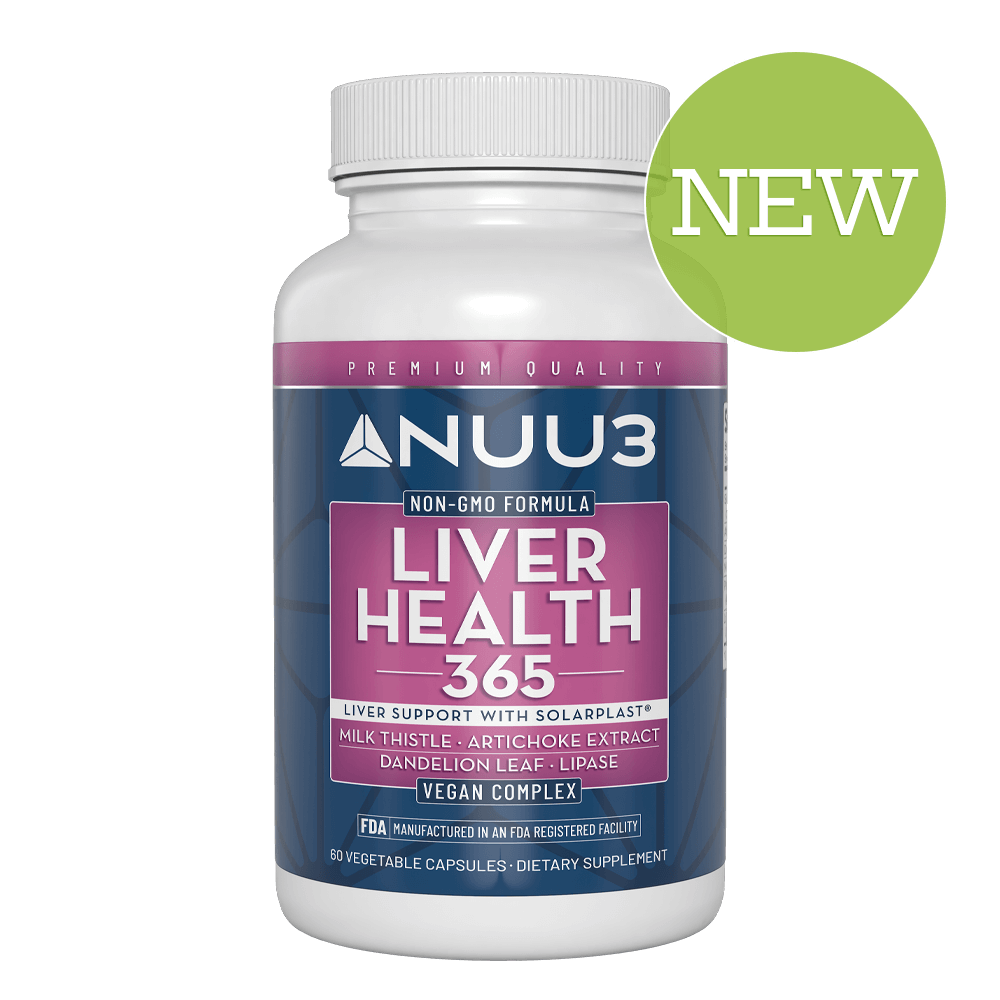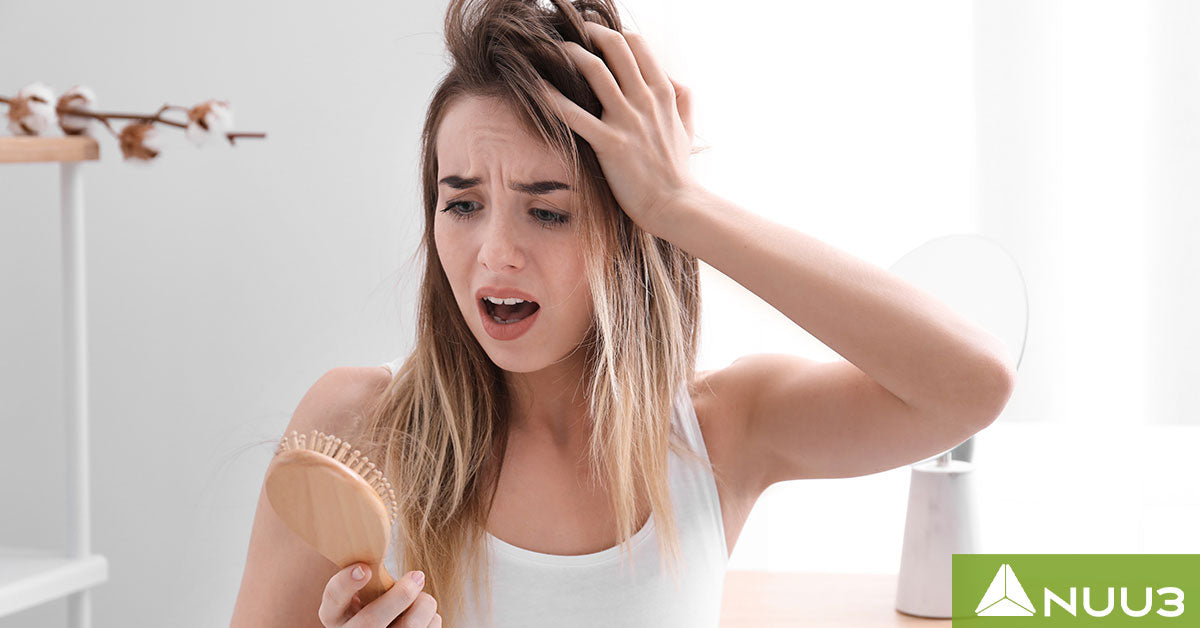We’ve been reminded to eat healthy foods and drink our vitamins so that we will grow tall and strong. We have also been told that if we don’t take our vitamins, our hair will fall out. But, is there any truth in it?
A global study shows that hair fall affects 33% of women and 85% of men[1]. Alopecia androgenetica, or male/female pattern baldness is a major contributing factor. Vitamins can help us have thick and beautiful hair that we try hard to maintain. To work on your hair health, you have to look at everything that has to do with vitamin deficiency hair loss. This guide will break it down for you.
Standard Causes of Hair Loss
Have you seen all those women in hair commercials flaunting their perfect, shiny hair? But, no matter how hard you try, you can’t make your hair as captivating as theirs. That’s because not everyone is blessed with superior hair health.
Here are some causes of hair fall:
- Skin problems (i.e. seborrheic dermatitis, alopecia, rosacea, etc)
- Stress, depression, and anxiety
- Hormonal changes (i.e. menstruation, menopause, hormone replacement therapy, etc)
- Internal diseases (i.e. lupus, fungal infection, anemia, scalp infection, diabetes, etc)
- Drug use (i.e. antidepressants, beta-blockers, blood thinners, etc)
- Childbirth
- Chemotherapy
To treat it, you would need to pinpoint the underlying cause.
What Makes Vitamins So Important For Healthy Hair?
Think of vitamins as a multi-purpose tool for keeping your hair’s volume, strength, and thickness right where it needs to be. Our body requires a specific amount of minerals, vitamins, and other nutrients to work properly.
Studies indicate that various nutritional deficiencies[2] can trigger all sorts of problems for your hair. They can change the hair texture, structure, and viability.
Minerals and vitamins[3] are key components in normal immune cell function and hair follicle development. Whenever we deprive the body of that kind of nourishment, we can expect vitamin deficiency hair loss.
The more abundant your diet is in vitamins, minerals, and nutrients, the easier it is to stimulate the hair follicles, protect them from free radicals, and reduce the risk of premature graying.
The Connection Between Hair Loss and Vitamin Deficiencies
Different health problems, like alopecia areata, female pattern hair loss, androgenetic alopecia, and chronic telogen effluvium have a lot to do with nutrient deficiencies. When the body doesn’t get the nourishment it needs, the hair may become prone to thinning.
Vitamin deficiency hair loss can happen in these cases:
- Malabsorption - People with a specific health problem, like Crohn’s disease, celiac disease, or recent surgery to the digestive system, can find it difficult to get their body to absorb all the nutrients.
- Poor diet - Most of us turn to fast food, pastries, noodles, and cookies because they are easily available. But, foods such as these offer zero useful sustenance.
- Pregnancy and breastfeeding - Pregnant women or those who are still feeding their babies may need higher amounts of nutrients.
- Medications - Some medicines can affect your nutrient absorption rate.
- Aging - Old age comes with a host of problems. One of them is the fact that the body can become less efficient at using or absorbing nutrients.
What Vitamin Deficiencies Can Make You Lose Hair?
Various vitamins have different purposes. To understand vitamin deficiency hair loss, you need to figure out which of these vitamins or minerals is your body lacking.
1. Vitamin D
More than 1 billion people have vitamin D[4] deficiency or insufficiency.
Many people ask, “Does vitamin D help hair growth?” According to a study, 82.5% of patients with telogen effluvium (a condition that causes extreme shedding of the telogen hair), who took vitamin D3[5] managed to regrow some of their hair.
Vitamin D has potent anti-inflammatory compounds that can curb the odds of hair fall.
2. Vitamin E
The scalp and hair can benefit from vitamin E.
Vitamin E[6] is packed with antioxidants, making it a go-to choice for hair growth.
If you are looking for a supplement that is high in vitamins E, A, and D, then you are in for a treat. The NUU3 Hair, Skin, and Nails Gummies feature all the ingredients you can find in the food you eat. They are nutritional and fulfilling.
You can use the gummies to speed up your metabolism and work on your skin, nails, and hair. The formula is teeming with biotin. This ingredient can make your hair strong and lush.
3. Vitamin B12
In the U.S. and UK, roughly 6% of adults younger than 60, lack enough vitamin B12[7]. That rate is almost 20% for people over 60.
Vitamin B12 can restore your hair’s fullness, and thickness. It can do this by boosting the production of red blood cells.
The NUU3 ACV Gummies have a good amount of B12 for hair health. Paired with folate, vitamin B6, and iodine, these gummies can give you energy and detoxify the system. The blend is a natural solution for anyone looking to alleviate bloating and give their hair a complete overhaul. They provide slow but steady progress.
4. Vitamin C
If you are wondering which vitamin deficiency causes hair loss, then it’s best to take a look at your vitamin C levels.
About 1 in 20 people in developed countries have a deficiency in vitamin C[8]. You need it to stimulate collagen, which can help decrease hair fall, stimulate hair health, and amplify hair growth.
Many dermatologists are suggesting people make full use of vitamin C in hair care. It can prevent the hair from growing thin, brittle, and weak. It may prevent premature graying and tackle problems like dandruff.
5. Zinc
Your hair follicles thrive with adequate zinc levels. Studies indicate that zinc[9] has an antiandrogenic potential and can help the hair grow. It can be highly beneficial for people with androgenic alopecia.
When it comes to vitamin deficiency hair loss, you should take a look at your zinc levels as this mineral has remarkable anti-inflammatory and antioxidant compounds. It can help regulate inflammatory cytokines and oxidative stress.
Zinc may help in hormone regulation and boosting the natural rejuvenation process.
How Can I Save My Hair?
Do you want to know how to regain hair loss from stress? Taking care of your hair requires a lot of effort, persistence, and dedication and, it’s not always about getting expensive products from popular brands.
Think about the food you are eating. Try to add diversity to your meals. Experiment with foods that provide a healthy dose of nutrients like veggies, fruits, legumes, pulses, healthy fats, proteins, beans, etc.
Now, the key here is to pick whole foods instead of processed goodies. When changing your diet, be sure to include:
- Iron-rich foods like spinach, dried fruit, liver, beans, etc.
- Vitamin A foods like carrots, dairy, fish, etc.
- Protein like eggs, milk, and lean meat.
- Zinc-rich foods like chickpeas, green peas, and wheat germ.
If you are lacking some nutrients, the NUU3 Daily Multivitamin Gummies may come in handy. You are getting fruit-flavored gummies with a bunch of key nutrients to support your scalp and hair. These gummies contain fruit extracts that can fit into different diets. They are a hair-healthy vitamin blend. They can optimize the immune system, give you a quick energy boost, and promote healthy gut bacteria.
Hydration will also play a role in how you get your hair growth back on track. Drinking an adequate amount of water per day prevents scalp itchiness and the development of dandruff while also helping reduce the risk of the hair becoming dry and brittle. You are hydrating the skin cells and hair follicles.
Other tips include:
- Controlling emotional stress through yoga, meditation, and mindfulness
- Quitting smoking
- Not over-styling the hair
- Taking fish oil or omega-3 supplements
- Using topical oils like lavender, peppermint, and rosemary
- Massaging the scalp to boost blood flow
FAQs
How can I know if my hair is falling out because of vitamin deficiency?
Listen to your body. Your nails can become brittle, the scalp feels itchier and drier, and you start losing more hair. Dry patches on the skin can take longer to heal and you may experience fatigue, irritability, or muscle stiffness.
Can vitamin D deficiency cause hair loss only on the top of my head?
Vitamin D deficiency can disrupt the anagen phase. It can push the follicles into a resting phase, which can make the hair fall out at the top of your head.
Will my hair grow back to normal if I get enough vitamins?
If you are losing hair because of a vitamin deficiency, fixing it can help the hair grow faster. But, if another cause makes you lose hair, like stress, hormonal changes, and diseases, then vitamins alone won’t be enough. You must treat the root of the problem.
Wrap Up
We often overlook the importance of our hair until we start noticing excessive hair fall in the bathtub, comb, or bathroom sink. If you are experiencing hair loss, it's recommended that you consult with your dermatologist. They can help you determine if your body is lacking in any essential vitamins and suggest some lifestyle changes accordingly. With a bit of effort and proper care, you can manage hair loss effectively.
References
1] ↑ https://medihair.com/en/hair-loss-statistics/
2] ↑ https://www.sciencedirect.com/science/article/abs/pii/S0738081X21000729
3] ↑ https://www.ncbi.nlm.nih.gov/pmc/articles/PMC6380979/
4] ↑ https://www.ncbi.nlm.nih.gov/pmc/articles/PMC3068797/
5] ↑ https://pubmed.ncbi.nlm.nih.gov/33642467/
6] ↑ https://www.ncbi.nlm.nih.gov/pmc/articles/PMC3819075/
7] ↑ https://ods.od.nih.gov/factsheets/VitaminB12-HealthProfessional/
8] ↑ https://www.healthline.com/nutrition/vitamin-c-deficiency-symptoms
9] ↑ https://www.ncbi.nlm.nih.gov/pmc/articles/PMC6124235/











